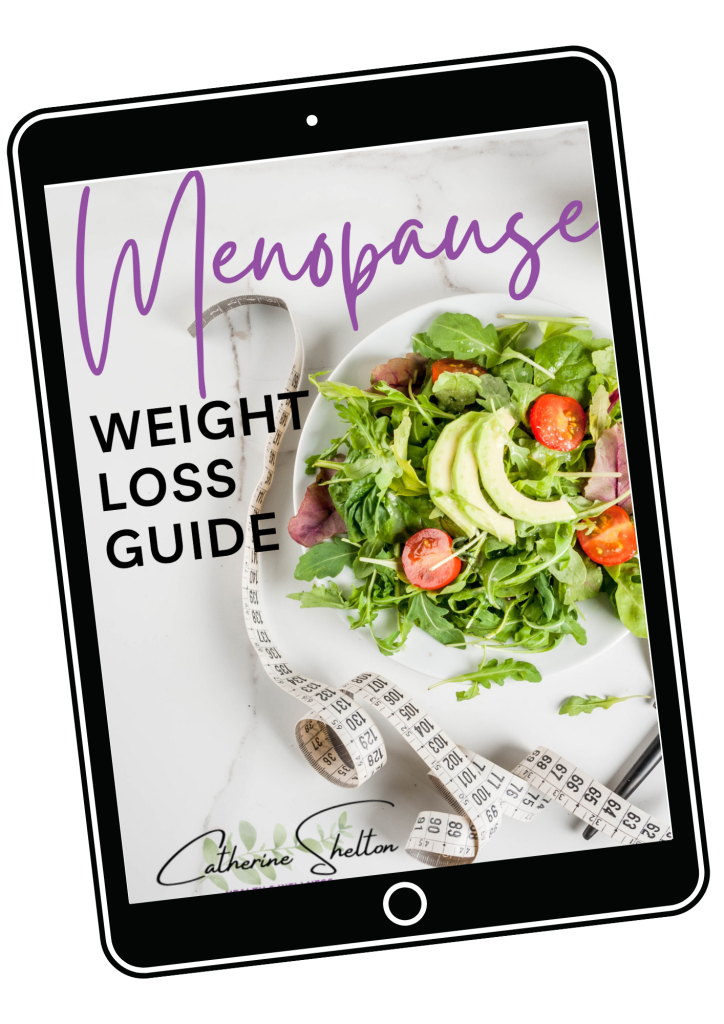First: Book Your Spring Kickstart Laser Health Coaching Session!
Before we talk about our 4 happy hormones, I just want to let you know about a great opportunity to receive some health coaching!
Spring is a great time to brush away the cobwebs and get out of the same-old-rut we’ve gotten ourselves into over the winter.
Which is why I’m offering you a spot for a special, one-off, Spring Kickstart Laser Coaching Session! This is the perfect time of year to kickstart your health and wellness goals. Easter is over, and hopefully, most of the chocolate has now been eaten (unless you’re like my eldest daughter who will no doubt make hers last through to Christmas – I don’t know how she does it!). But really, there’s nothing too big coming up in the yearly calendar to derail your plan from here to the summer, so it’s a great time to start afresh.
If you’ve been looking to eat more healthily, incorporate more exercise into your routine, maybe lose a bit of weight, and generally want to gain more energy and ‘get up and go’, then don’t delay in booking your special Spring Kickstart session. You’ll find the link to do that in the show notes below, or head to catherineshelton.com/workwithme and scroll down to the bottom of that page. I can’t wait to connect with you!
Client Testimonial
I can’t wait to talk about our happy hormones, but before I do, I just wanted to share a testimonial from a recent client. Kitty is from Europe but is currently living in Africa. She came to me with symptoms of menopausal weight gain, stress, not sleeping well and generally feeling like she wasn’t sure how to look after her body in her 40s. After six sessions, this is what she had to say:
“I signed up for a 3-month programme with Catherine and it was wonderful! We had 6 sessions on zoom, each an hour long and they were so interesting and helpful. First she got me to fill in a food diary and from there taught me so much about wise food choices for this stage of my life (mid-40’s). I live in Africa and I used to put on weight when I went to Europe in the summer and it would fall off again when I returned to Africa, but in recent years it didn’t fall off anymore which was becoming a concern for me. I had looked online for tips but so many food suggestions were not available in my context or left me feeling so hungry that I didn’t keep it up for long.
Working with Catherine I was able to learn helpful principles of food choices that help my body at this time of my life and using this information I could design a meal plan incorporating the foods that are available here. As a consequence, I have been losing weight, my clothes are starting to fit me again and I have more energy! I also really appreciated the holistic nature of the discussions and I learnt a lot about myself in relation to food that I hadn’t realised. For example, in some of the cultures where I spend time, there is a lot of social pressure surrounding food where I would feel under pressure to eat more than I needed to honour my hosts effort in providing for me and my family. Another example would be that when I was talking with Catherine about how to put my new plans into practice when I go home, I realised that one of the main things I look forward to when I go back to Europe is the food! So it was helpful for me that we could think together in advance about how to tackle these pressures. For example, how to politely refuse too much food or things that I would rather not eat, or to think of other enjoyable activities in Europe that are not food related. All in all it was a really positive experience and I was so blessed to learn from Catherine’s experience, resources and guidance. I would really recommend it!
Ah, it was such a joy to work with Kitty. And you don’t have to be living in an African village to get similar results. So if Kitty’s words have inspired you, then I encourage you to jump on a free Discovery Call with me to find out more about my 3-month programme, or sign up for the one-off Spring Kickstart Coaching Call to get started.
Our 4 Happy Hormones
Our bodies are amazing, complex organisms. And did you know that our bodies make over 200 different hormones? Now, hormones act as messengers, telling different cells in your body what’s going on both inside and outside of your body, and they tell the cells what to do. And, as you probably know, if your hormones are out of whack, for whatever reason, it can make a huge difference to how you feel and to your health.
Now, as I’m sure you know, there are different groups of hormones. There are our sex hormones, oestrogen, progesterone and testosterone, which we’ll talk about in separate episodes. There are our stress hormones, cortisol and adrenaline for example. Our thyroid hormones, things like TSH, T3 and T4, our hunger hormones, leptin and ghrelin, and many, many more.
But today we’re just going to look at my favourites – our 4 happy hormones: Dopamine, Serotonin, Oxytocin and Endorphins. They sound a bit like 4 little dwarves from Snow White, don’t they? They’re also called our feel-good hormones. Let’s go through each one, what it is, and how we can get a bit more of it.
Happy Hormones #1: Dopamine
Dopamine is known as the Reward Hormone. It gets released when you do a pleasurable activity or encounter a pleasurable situation. For example, completing a task, eating a certain kind of food, or doing a self-care activity. It also gets stimulated when we strive towards a goal. We also get a dopamine hit when we get likes on our social media, which is something tech companies are very aware of.
Dopamine creates a motivation loop which reinforces the behaviour so we can experience the pleasurable situation again and again, and this is where we need to take care because it can lead to addiction. Particularly, addiction to certain kinds of food, alcohol, drugs, online shopping, gambling, and social media scrolling.
If we’re lacking in dopamine, that can lead to low mood and lack of concentration and motivation.
Things to help elevate dopamine in a healthy way include: doing healthy, stimulating activities that bring a sense of reward, and eating foods high in tyrosine, which includes things like bananas, avocados, pumpkin and sesame seeds and soy products. Also, time spent in prayer and meditation has been shown to increase dopamine.
Happy Hormones #2: Serotonin
Serotonin is the Calming Hormone. It helps govern our feelings of happiness and wellbeing, and helps to boost our mood if we’re prone to feeling down. In fact, studies have shown a link between depression and low levels of serotonin, which is why anti-depressant medications, often knowns SSRIs, actually work by increasing levels of serotonin in your brain.
Now, for some people, anti-depressants are essential, and I’m not suggesting you should stop taking them without proper consultation with your doctor, but there are ways to boost our serotonin naturally too. These include exercise and exposure to sunlight.
But one of the key ways is to look after your gut microbiome. You see, it’s estimated that about 90% of our serotonin is made in our gut. So if you’re dealing with gut issues such as IBS, Candida, SIBO or leaky gut, or just eating a very poor diet with lots of sugar and processed foods, then it’s very possible that your serotonin levels are impaired. So just switching to a gut-friendly diet with lots of different varieties of whole plant foods, pre and probiotics and fermented foods can not only have a great impact on your overall health but also drastically improve your happiness levels.
Higher levels of serotonin can also work as an appetite regulator, which makes sense doesn’t it? When we’re feeling happy and positive then we don’t turn to food as much, but when we’re feeling down then often we crave something sugary or salty to make us feel better. If you’d like to learn more about how to improve your gut microbiome, then check out episode #21, entitled ‘Improve your Digestive Health in 10 Simple Steps’.
Happy Hormones #3: Oxytocin.
Oxytocin is the Love Hormone. Our bodies produce this hormone through relationships with others, so for example when we fall in love, engage in physical affection or cuddle newborn babies. In fact, it’s a really important hormone to help with childbirth, as it helps to speed up contractions and release breast milk.
Like with the other happy hormones, there’s a link between low levels of oxytocin and depression, particularly postpartum depression.
Ways to boost oxytocin naturally include doing activities in groups such as exercise and, interestingly, singing in a choir. And then, also, anything that involves positive physical bonding, such as hugging, cuddling, making love or even getting a massage.
Happy Hormones #4: Endorphins.
These are often known as the Willpower hormones because they help us create good habits. The body releases endorphins in response to pain or stress because they’re a natural painkiller. They actually work a little bit like morphine in our bodies.
There are about 20 different types of endorphins. Perhaps the best known one is beta-endorphin, which is the hormone associated with a ‘runner’s high’. The body releases endorphins to help relieve pain and block discomfort, so you often finish your run or your workout feeling really good, and it’s this feeling which encourages you to do it again.
Endorphins can also help to relieve stress and anxiety, perhaps another reason why they’re most associated with exercise.
So how do we naturally increase endorphins? Well, mainly through doing moderate aerobic exercise (not too intense) such as fast walking or light jogging. But also, you can increase your levels of endorphins through regular meditation, playing music, having a really good laugh, and getting ultraviolet light on your skin when you’re outside in the sunlight.
So, just to recap, our 4 Happy Hormones are:
- Dopamine – the reward hormone
- Serotonin – the calming hormone
- Oxytocin – the love hormone and
- Endorphins – the willpower hormones.
Why not take one or two of the tips mentioned in this article and get going right away to naturally increase one or more of these happy hormones in your body today?
One of the ways you might like to increase your oxytocin levels is by joining our lovely Facebook community – the Healthier Life Through Menopause Community Facebook group! If you’re not already a member, then come over and join us. We have over 100 like-minded women in the group, and I post great content about food, nutrition, recipes and lifestyle tips almost every day. We can’t wait to have you join us!
Episode Show Notes
Book your Spring Kickstart Laser Coaching Session here
Grab your FREE Menopause Weight Loss Guide.
Come and hang out with me on Facebook and Instagram
Join our Healthier Life Through Menopause Community Facebook Group and get daily tips, recipes, challenges, encouragement and more!
Want to find out more about my health coaching programmes? Head over here.
Interested in getting some private, one-on-one health coaching? Jump on a free Discovery Call to find out more, no strings attached.
If you’d like to give my feedback and suggestions for future episodes, I’d love to hear from you. Email me at hello@catherineshelton.com
If you’re generally not feeling your best and would like to make some changes, there are a lot of simple steps you can take by modifying your diet and lifestyle which can have a hugely beneficial effect on your overall health and energy levels, as well as help ease your symptoms. If you’re interested to find out more, jump on a free, 30-minute discovery call with me, I’d love to hear from you.
Disclaimer: This information is for educational purposes only and does not replace advice given by your primary care provider. Please see your doctor if you’re considering making substantial changes to your diet and lifestyle.

GRAB YOUR FREE MENOPAUSE WEIGHT LOSS GUIDE!
Are you finding the pounds are gradually creeping on? Are you frustrated because the usual trick of ‘eat less, move more’ just isn’t working anymore?
In this guide, I explain why women often gain weight in perimenopause, and I give you 3 simple tips so you can start to turn that around right away!









Leave a Comment